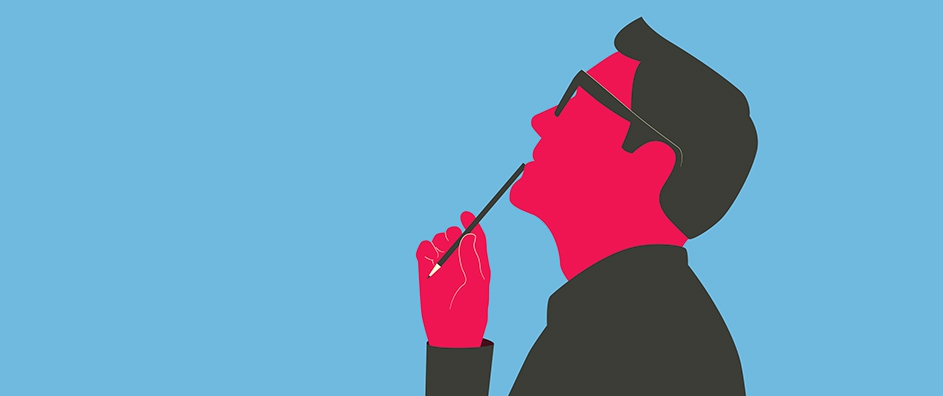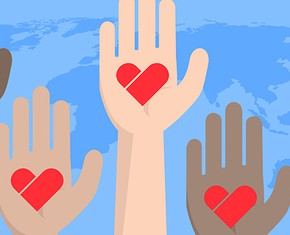The views expressed in our content reflect individual perspectives and do not represent the authoritative views of the Baha'i Faith.
Have you thanked a journalist lately? We often thank our public servants—teachers, first responders, veterans—but we rarely thank reporters.
Which seems strange, when you think about it, since reporters risk their lives and their freedom to bring us the information, the knowledge and the insight we need to govern ourselves, increase our awareness of the world’s issues and rid our civilizations of corruption, graft and hypocrisy.
I’ve personally worked as a journalist, so I know how hard—and how thankless—the job tends to be. It’s one of the few professions where you can lose your life in the pursuit of truth. Someone once asked me: “Why do reporters even do it?”
It struck me as a good question. At the time, a fellow journalist in the city where I worked had just lost his life because of a bomb planted under the driver’s seat of his car. His name was Don Bolles, and he was investigating the involvement of organized crime in sports betting in Arizona. Don learned too much, or asked the wrong questions, or probed too deeply, and was killed for his persistent journalistic pursuit of the truth. I learned, when Don died, what good journalism and the dogged pursuit of the truth could cost.
The Baha’i teachings exalt and honor the profession of journalism—and say that it even reflects the state of civilization itself. Abdu’l-Baha, interviewed by Western journalists many times, said:
There are good and bad newspapers. Those which strive to speak only that which is truth, which hold the mirror up to truth, are like the sun: they light the world everywhere with truth and their work is imperishable. – Star of the West, Volume 2, p. 3.
In the Baha’i writings, Baha’u’llah urged every journalist toward the facts, toward equity and toward justice:
In this Day the secrets of the earth are laid bare before the eyes of men. The pages of swiftly-appearing newspapers are indeed the mirror of the world. They reflect the deeds and the pursuits of diverse peoples and kindreds. They both reflect them and make them known. They are a mirror endowed with hearing, sight and speech. This is an amazing and potent phenomenon. However, it behoveth the writers thereof to be purged from the promptings of evil passions and desires and to be attired with the raiment of justice and equity. They should enquire into situations as much as possible and ascertain the facts, then set them down in writing. – Tablets of Baha’u’llah, p. 39.
On May 3rd every year, the world observes United Nations World Press Freedom Day, which celebrates the fundamental principles of freedom of the press, defends the media from attacks on their independence and pays tribute to journalists who gave their lives in pursuit of the truth.

The international Committee to Protect Journalists (www.cpj.org) reports that last year, in 2016, 48 journalists died in the line of duty. Those courageous reporters gave their lives so you could know the truth.
To the person who asked that original question about why journalists even do their work and take on such high risks, I suppose, trading your life for the truth seemed like an unreasonable bargain. But journalism, I answered, is at heart one of the noblest professions, which honors the truth and tries to find it, which fosters the public welfare and serves as the first agent for the development of the community:
We may ascertain the progress or retrogression of a nation by its journalism. If journalists should abide by their duties, they would be the promoters of many virtues, among the community. Truth and the virtues would be fostered. This would be so if they carried out the duties incumbent upon them.
Journalists must serve truth. Newspapers must investigate the means for the progress of humanity, and publish them. Journalists must write significant articles, articles that shall foster the public welfare. If they do so they will be the first agents for the development of the community. – Abdu’l-Baha, in an interview with the Philadelphia Public Ledger, reprinted in The Apostle of Peace, a Survey of References to Abdu’l-Baha in the Western Press, 1871-1921, by Amin Egea, pp. 364-365.
To give some recognition to those journalists who do serve the truth, you might want to make a point of expressing your gratitude to a reporter today.
















Comments
Sign in or create an account
Continue with Googleor